A Roadmap for the Independent System Operator of the Electricity Towards 2040
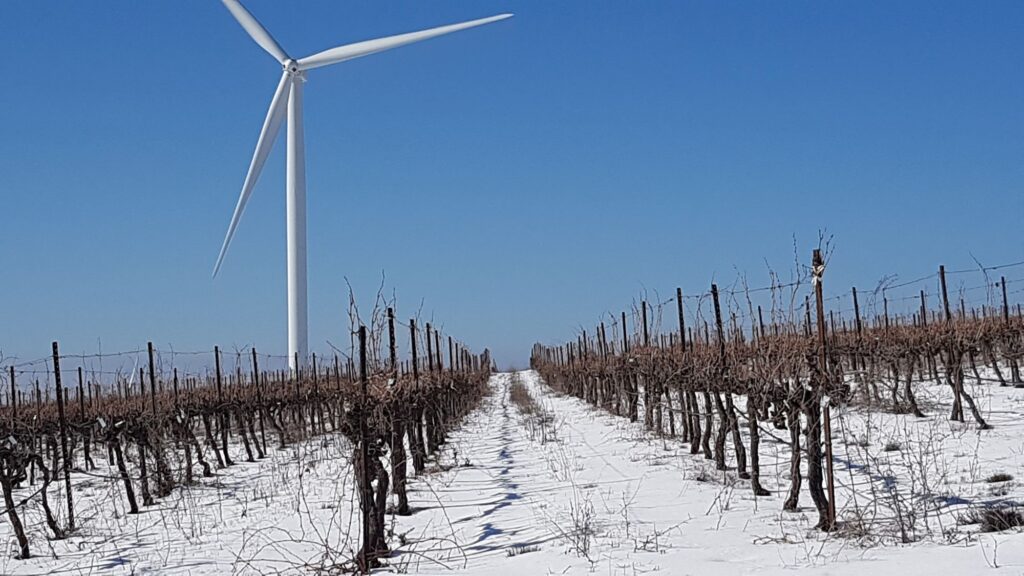
The Samuel Neaman Institute conducted a research for Noga on the topic of “A roadmap for the independent system operation of the electricity in 2040”.
The research was published on Noga’s website and can also be viewed here
Assessment of Methane Emissions from Natural Gas Supply Chain in Israel

Methane gas, the main component of natural gas, is the second most impactful greenhouse gas on global greenhouse gas emissions from anthropogenic sources, after carbon dioxide, and is currently the focus of efforts (along with other short-lived greenhouse gases) to reduce global warming of the atmosphere. Methane, as a contributor to the greenhouse effect, is […]
Opportunities in a Changing Energy Economy

The Samuel Neaman Institute at the Technion has addressed the future of the energy sector in Israel, focusing specifically on the Sharon-Carmel municipal association, to examine the challenges and opportunities in this area. This document reviews trends in the short term (up to 2030), medium term (up to 2040), and long term (up to 2050), with varying levels of certainty. As the time frame extends, the level of uncertainty increases.
Energy Forum 53: Green Building in Israel
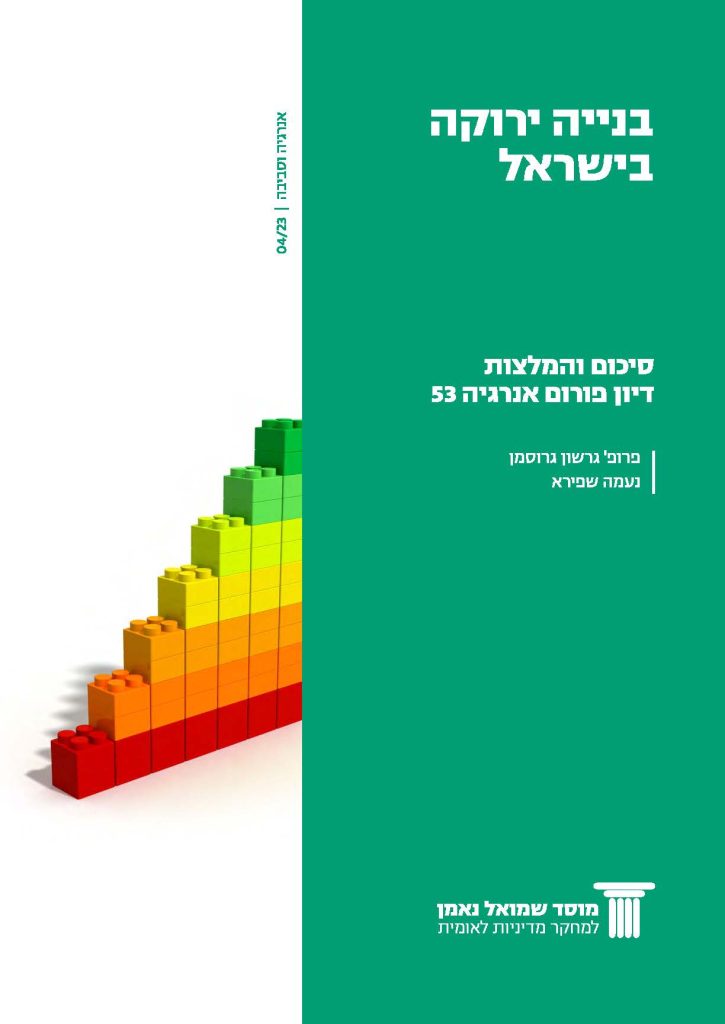
Green building, or sustainable building, is a multidisciplinary approach that seeks to use environmentally responsible and resource-efficient processes throughout the entire life cycle of the building, from choosing its location to the stages of planning, construction, operation, maintenance, renovation, and demolition. The Green Building Standard in Israel – Israeli Standard (SI) 5281 – was written […]
Energy Forum 52: A Nuclear Power Plant in Israel
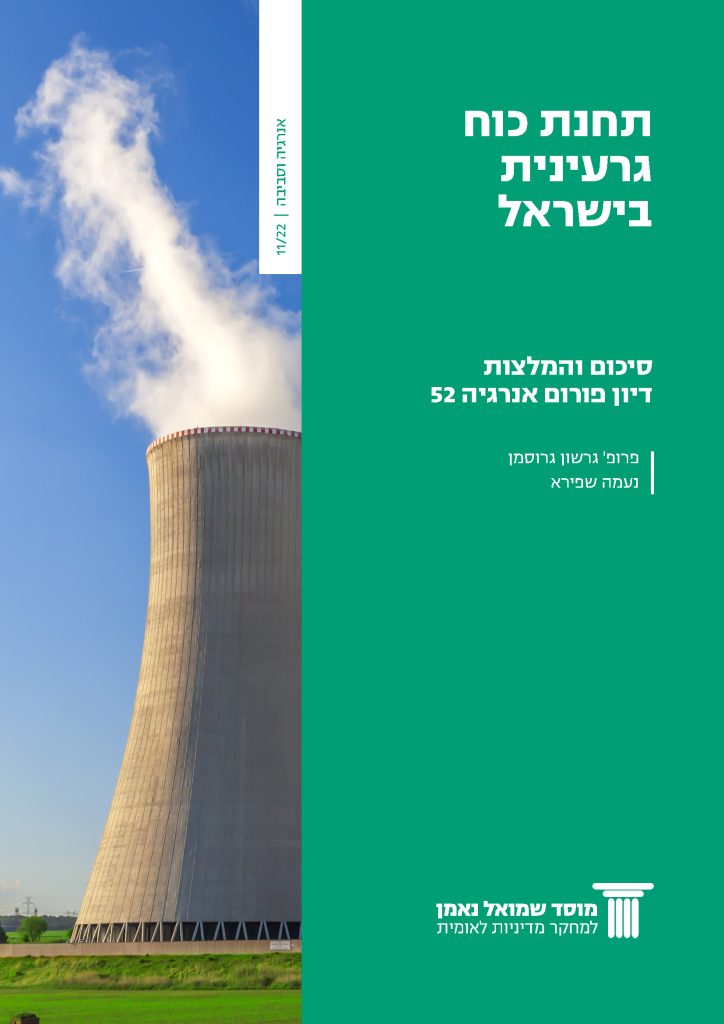
Building a nuclear power plant has been on the agenda of the energy sector in Israel since the 1970s. As part of the decision to diversify the country’s fuel mix, following the energy crisis of the October 1973 War and the oil embargo imposed on Israel and its allies, the possibility of establishing a nuclear […]
Greenhouse Gas Emissions Registry in Israel – Accounting and Reporting Protocol
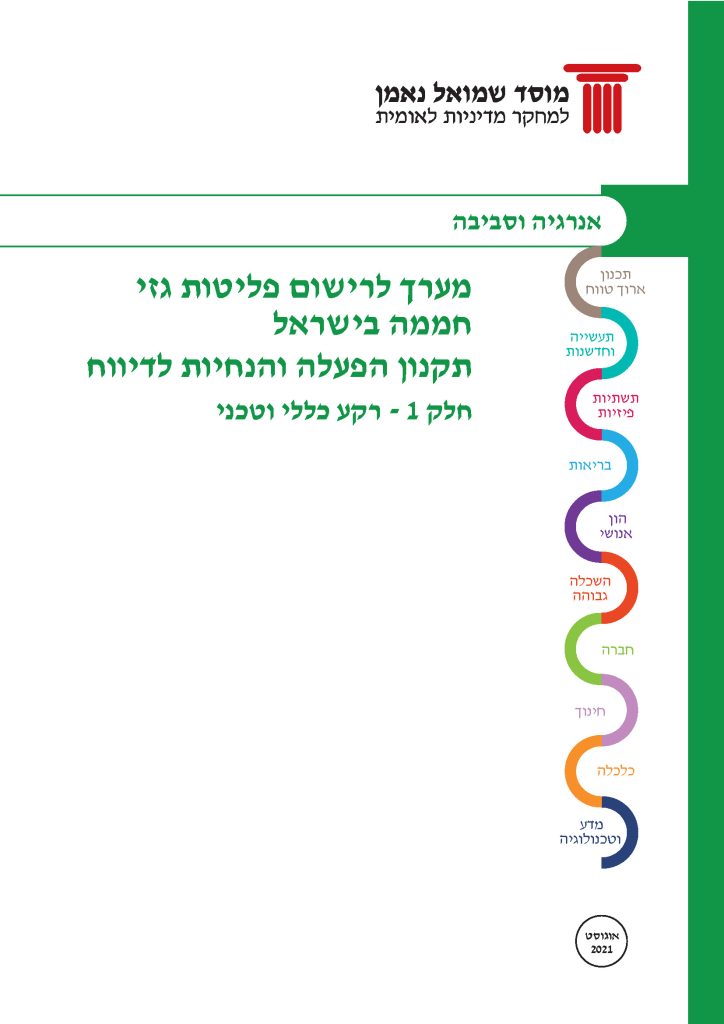
The Israeli GHG registry was designed by collaborate team from the environmental protection ministry, The Samuel Neaman Institute and Ecotraders Ltd with a wide team of stake holders. The goal of the team was to develop a protocol with clear instructions that will guide organizations and companies from all sectors through the process of accounting […]
Energy Forum 51: The power grid challenge – transmission, optimal utilization of grid resources, and local production
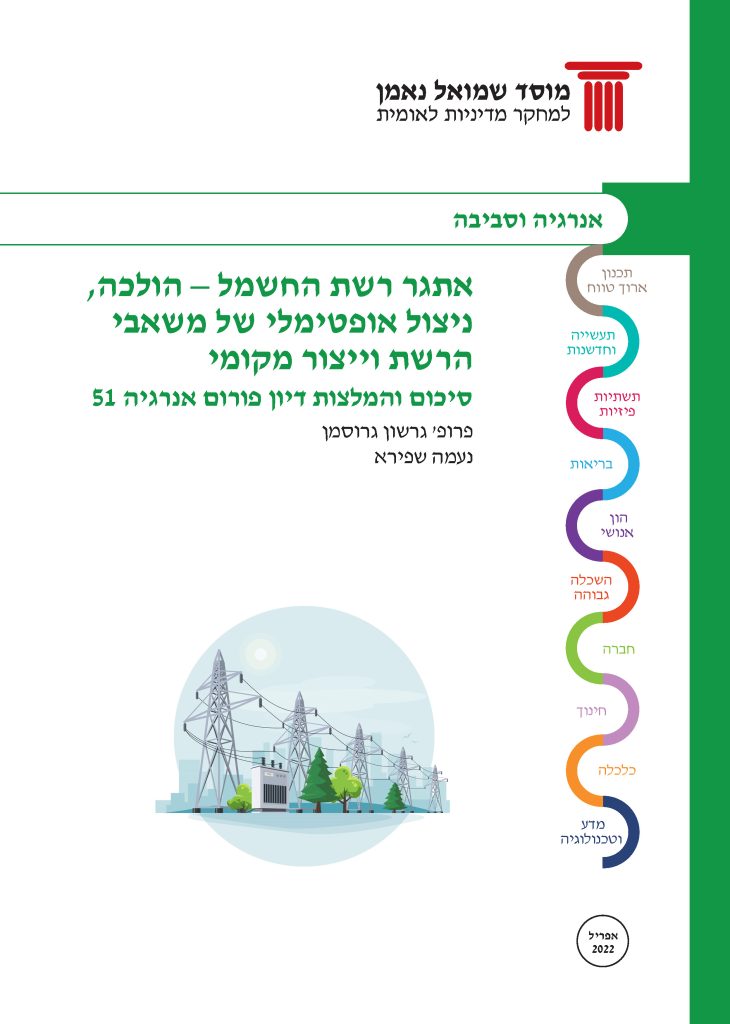
In light of the climate crisis, global reduction targets of greenhouse gas emissions will become more ambitious over time, and the State of Israel, along with all the countries of the world, will be required to increase its targets. In October 2020, the Israeli government decided to increase the target for electricity generation from renewable […]
Greenhouse Gas Emissions Reporting and Registration System in Israel: Summary of Reports for 2020
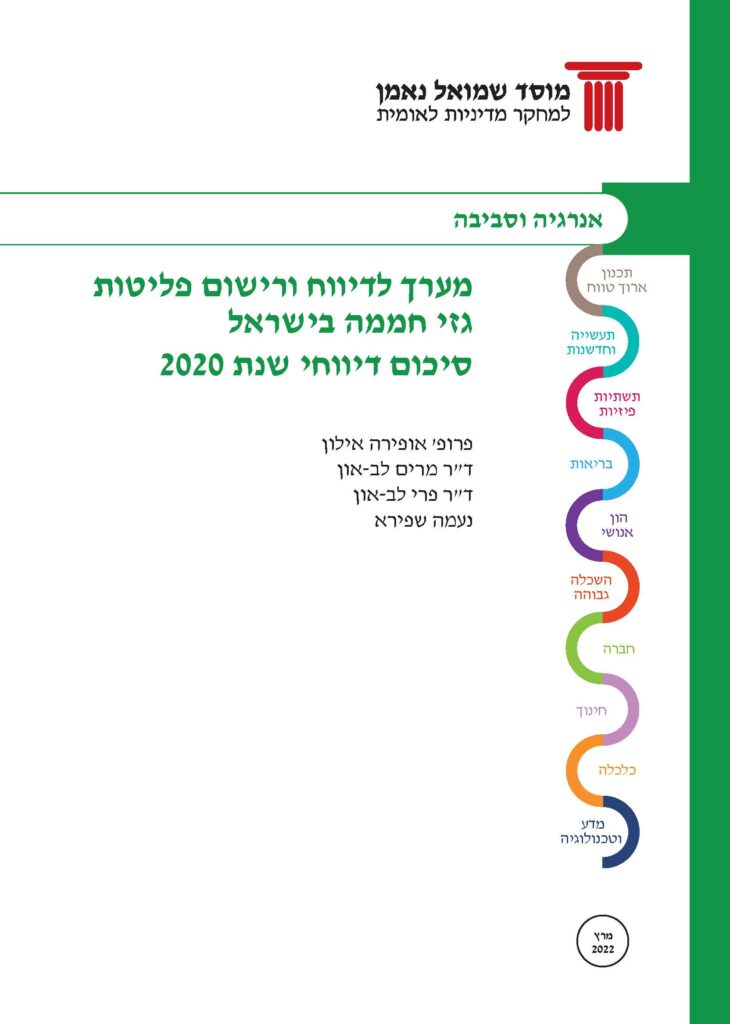
73 companies and organizations submitted their reports to the Voluntary GHG Registry in 2020 to the Ministry of Environmental Protection. Each of the reporting companies, enclosed a signed statement regarding the reliability of the data, as required by the Reporting and Registration System, which was developed by SNI in cooperation with the Ministry of Environmental […]
The Global Economic Impact of the Russia-Ukraine War
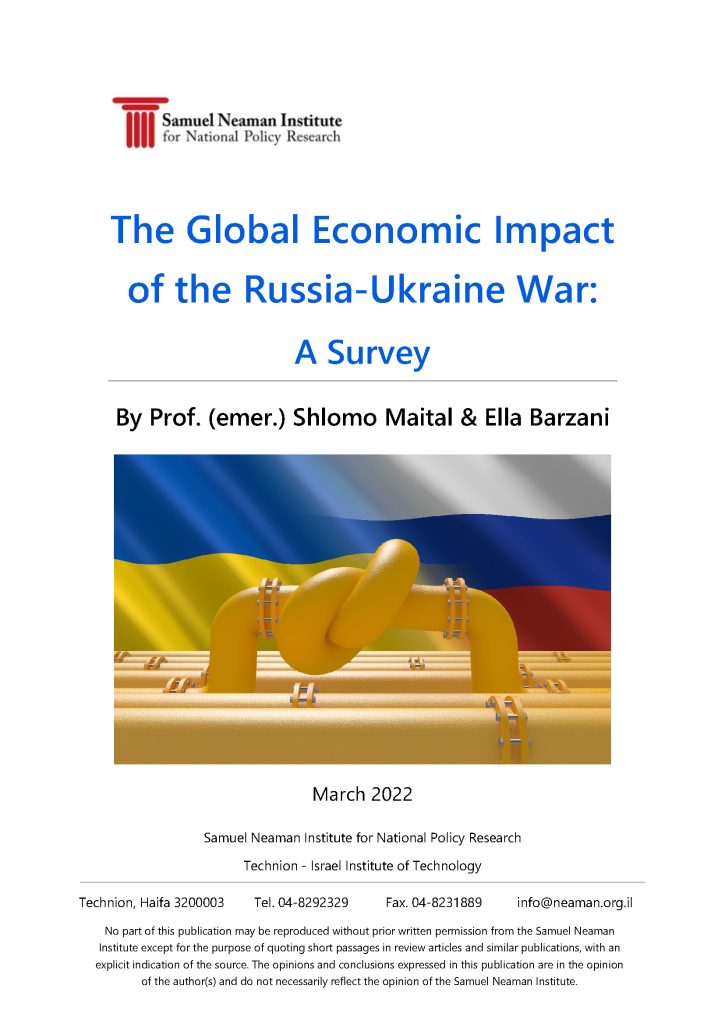
This survey was prepared 20 days after Russia launched its invasion of Ukraine. It reviews what we regard as credible knowledgeable insights on: stagflation, supply chain issues, ‘when the guns fall silent’, China as ‘monkey in the middle’, geopolitics and policy recalculation, and a conclusion.
Fundamental Elements in Designing Climate Law, and Recommendations for Implementation in Israeli Legislation
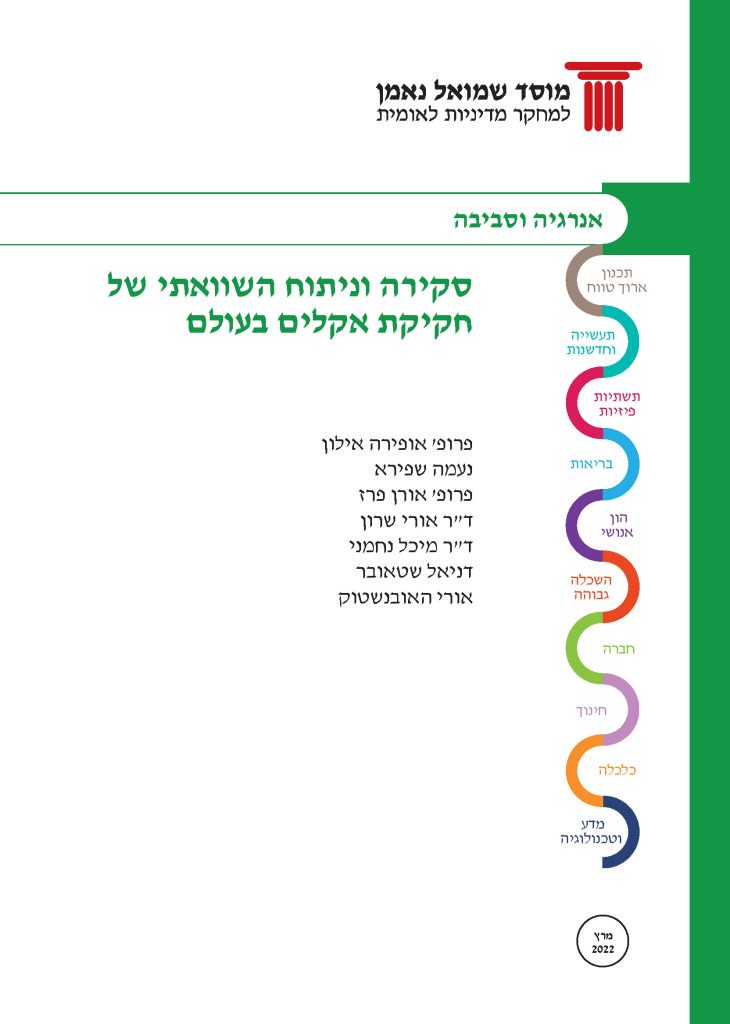
As part of a joint-venture between the Samuel Neaman Institute and the Ministry of Environmental Protection, a team of researchers from the Samuel Neaman Institute, the Faculty of Law at Bar Ilan University and the London School of Economics was formed in 2020. As part of a joint-venture between the Samuel Neaman Institute and the […]
